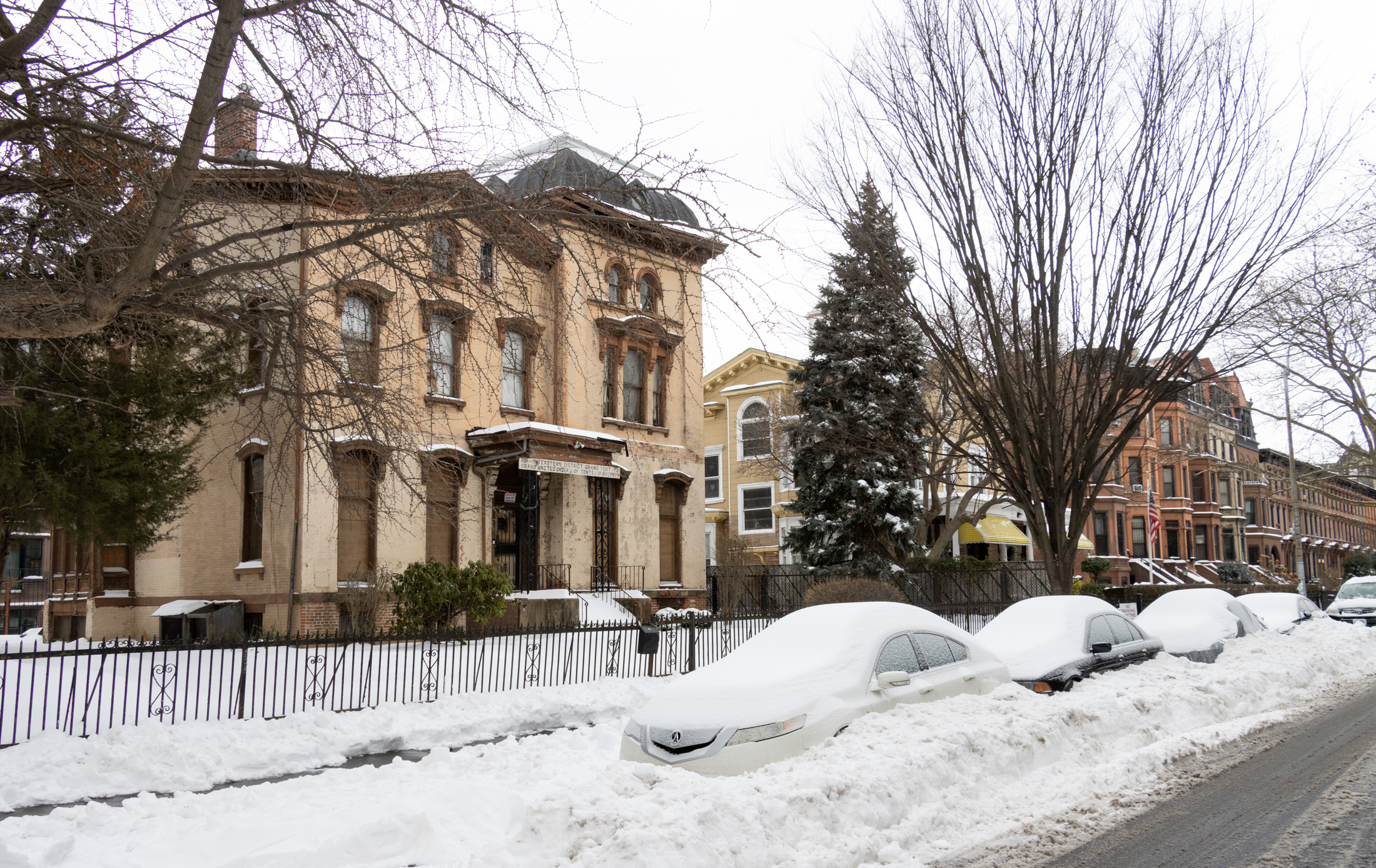What Lies Beneath?
Now that everyone’s had the weekend to digest last week’s insanity, how you feelin’ about ye olde real estate market here in Brooklyn? It’s been clear for a while that the some fringe areas are in for tough times, but how about the most blue chip ones like Brooklyn Heights and the choicest parts of…


Now that everyone’s had the weekend to digest last week’s insanity, how you feelin’ about ye olde real estate market here in Brooklyn? It’s been clear for a while that the some fringe areas are in for tough times, but how about the most blue chip ones like Brooklyn Heights and the choicest parts of Park Slope? How about some of those right in the middle like Clinton Hill? How far do you think they’ll end up falling from their peaks when all’s said and done?
Brooklyn Heights
Clinton Hill
Bed Stuy
Wall Street Reorg: Impact on Real Estate? [Brownstoner]
Photo by Gregory Taylor





fsrg, I’m surprised you could read my post with all of the typos.
Yes, in the short the loss of income, city and state funding, jobs, etc will be nothing but bad news for Brooklyn and the city in general. But in the long term, making Brooklyn once again affordable for the artists and creative professionals who have been the driving force of gentrification since the 1960’s will be a good thing for Brooklyn. The financial debacle should slow down or stop the further mallification and suburbanification of the borough and should allow more people who love Brooklyn for what it is to live here.
shillstoner – I agree with your assessment until you allege that all this is good for Brooklyn.
I don’t care who has been “priced out” – the loss of huge amounts of income, and asset values as well as increased unemployment has NEVER been a benefit to any community anywhere.
Who would have thought that George Bush would responsible for socializing the entire financial system? Wow.
Even assuming that the “bailout” works, the NYC economy and RE market is in for a massive shock from loss of tax dolalrs and oncome. Even those companies that withstand the crisis will no longer be showering their employees in lavish bonuses and compensation. And that of course is what drove the market to such heights. No matter how you cut it, where in for some big declines. And in the end that iss probably the best thing that could happen to Brooklyn, since so many of the people who want to live here and contribute to the borough have been priced out.
Ozymandius – you are kind of arguing both ends at the same time.
Banks/Fin Inst. will not issue new mortgages as long as they hold assets on their books that they are unable to value. The result of which is continued deterioration of housing.
So while the “bailout” plan wont directly impact housing, its effect most definitely will.
As to the bailout in general – it is a horror show but nothing like the horror that we are facing – by many accounts last week we were 48hrs away from – non-functioning credit cards & ATMS; Bank runs, panics and potentially riots and violence.
And while I am seriously in favor of higher taxes on ultra-high earners (since we are now seeing that ‘rugged individualism’ doesnt really exist – and those that benefit the most by “society” should pay the most to maintain it) BUT putting salary caps, demanding equity stakes in private companies and these other ‘disincentives’ will effectively destroy the potential of the Federal Govt from actually profiting in the long run on this plan. The quicker that Financial Inst. can get these toxic debts off their books and start making new $ (albeit at a much slower rate – since less leverage) – the better.
Additionally, you want these institutions to WANT to dump these assets at the cheapest possible price, and as quickly as possible – so that when the true value of these assets become clear (based on cash flow and collateral) – the Govt may sell at a profit. If the Govt makes Companies decide to try and “ride it out themselves” – then you are looking at prolonging the credit crunch AND increasing the cost to the Govt to buy the assets in the 1st place (why sell them cheap if the result is that I am going to hinder my earnings as well as that of my shareholders).
The smart move is fund the new RTC – buy cheap and tax high earners.
I am hoping to buy a 1-BR in Brookyln Heights soon…is the next 3-6 months the time to buy? Can prices in this nabe really drop much more?
Burning the candle at both ends now.
We have pressure from the outer edges of the buros… you can see on hotpads.com how all the edges of NYC are foreclosure rich already (lots of sub primes, low income).
But now with the bank failures, and the huge loss of jobs in manhattan, your going to see the same happen dead center (starting in manhattan. It shouldnt be as sharp, simply because their properties should be more valuable… but with the world economy now catching the american flu, youll have less foreign buyers keeping the prop up.
Housing in the US was over-valued by 20-35% (bubble peak vs US average) when looked at as compared against GDP, NYC was the same (slightly higher). Most of the country has had a hard correction (drops up to 25% or so). NYC hasnt.
While NYC is more inured agaisnt drastic price changes (co-ops, income, foriegn investment).. the relative value simply cant stand out with the outer buros dropping, and with the dead center loosing nearly a trillion dollars (and countless attached jobs and income).
Long story short, i think NY is in for a short term correction (-15%), followed by a long slide (additional -15%)… the distribution should sandwich the blue chip areas.
The only saving grace would be for NY to take a medium hit now (say -20%), and remain stagnant for 8-10 years.
–Lionballs
check out streeteasy.
theres a 2bed apartment in north park slope that dropped 100k a few days ago. I think its 650k down from 750k.
Many hedge funds have closed and many more will. You can’t really have a “run” on a hedge fund. Funds that are down a lot will close up because its not profitable for them to try and manage the money back to what is referred to as the “high water mark.” The funds that were using Lehman as prime broker have a whole other set of problems!!
Roubini also thinks hedge funds are next to suffer a run [on them], followed by LBO’s. If he’s right, NYC could be looking at 40-60% down says me.
p.s. I think he’s right